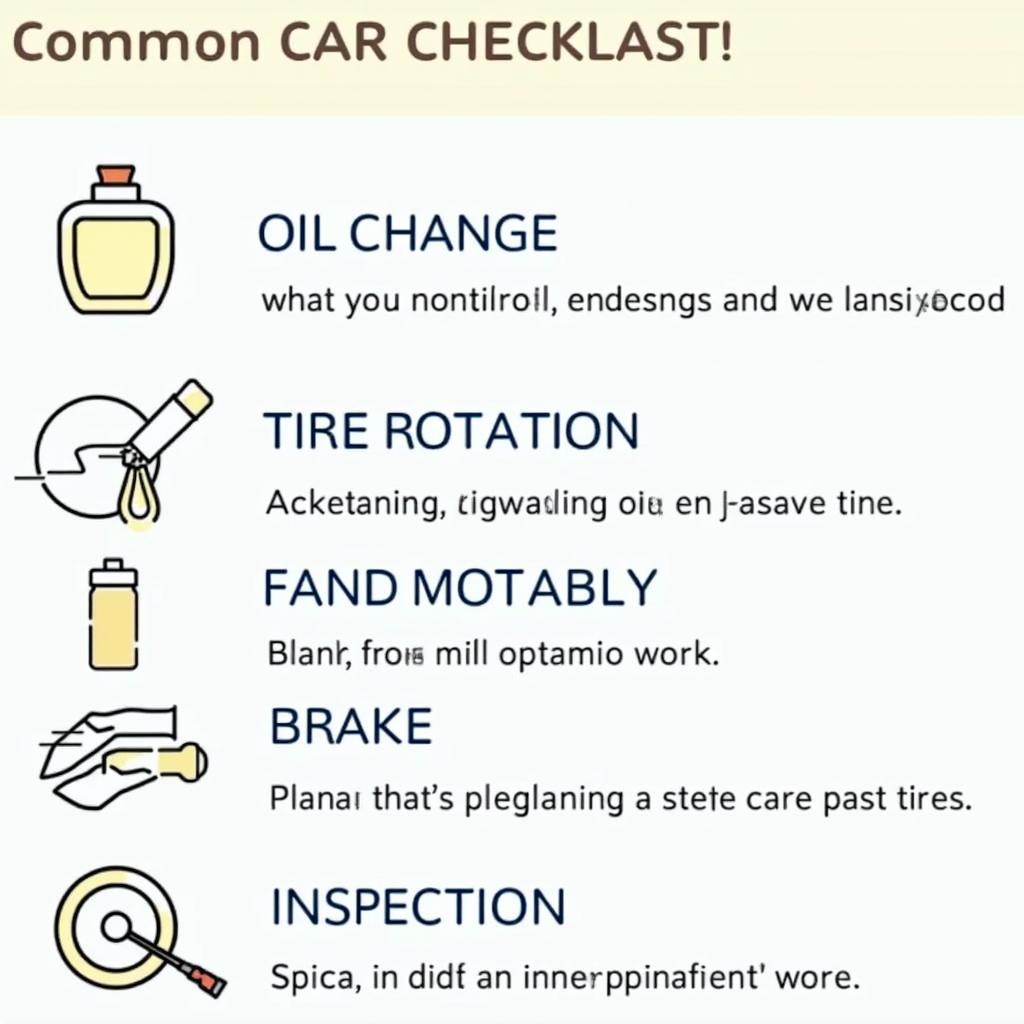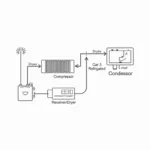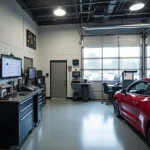Keeping your car running smoothly requires regular maintenance and occasional repairs. Knowing which auto repair services are essential and when to seek them can save you time, money, and frustration. This comprehensive guide provides an in-depth look at the most common auto repair services, empowering you to make informed decisions about your vehicle’s upkeep.
Essential Auto Repair Services for Every Car Owner
 Car Maintenance Checklist
Car Maintenance Checklist
From routine checks to more complex procedures, understanding these services is crucial for every car owner:
1. Oil and Filter Change
This is the cornerstone of car maintenance. Regular oil changes lubricate your engine’s moving parts, reducing friction and preventing premature wear.
Why it’s important:
- Prolongs Engine Life: Regular oil changes significantly extend the lifespan of your engine.
- Improves Fuel Efficiency: Clean oil reduces friction, allowing your engine to operate more efficiently and saving you money on fuel.
When to get it done: Typically every 3,000 miles or 3 months, but refer to your owner’s manual for specific recommendations.
2. Tire Rotation and Balance
Tires wear unevenly depending on their position on the car. Rotating them ensures even wear, extending their lifespan and improving handling.
Why it’s important:
- Increased Tire Longevity: Rotating tires ensures they wear evenly, maximizing their lifespan.
- Enhanced Safety: Properly balanced tires provide a smoother ride and improve vehicle control.
When to get it done: Every 5,000 to 8,000 miles.
3. Brake Inspection and Repair
Your brakes are your car’s most critical safety system. Regular inspections and timely repairs are non-negotiable.
Why it’s important:
- Ensures Optimal Stopping Power: Worn brakes compromise your ability to stop quickly and safely.
- Prevents Costly Repairs: Addressing brake issues early can prevent damage to other components, saving you money in the long run.
When to get it done: At the first sign of squeaking, grinding, or reduced responsiveness, or as recommended in your owner’s manual.
4. Engine Tune-Up
A tune-up optimizes your engine’s performance, improving fuel efficiency and reducing emissions.
Why it’s important:
- Boosts Performance and Fuel Efficiency: A well-tuned engine runs smoother and more efficiently, saving fuel and reducing emissions.
- Extends Engine Life: By ensuring all components work in harmony, a tune-up helps prevent premature wear and tear on your engine.
When to get it done: If you notice reduced fuel economy, decreased performance, or rough idling, or as recommended in your owner’s manual.
Understanding Common Car Problems
While routine maintenance addresses preventative care, it’s essential to be aware of common car problems that may require professional attention:
1. Warning Lights on the Dashboard
These lights are your car’s way of communicating potential issues. Ignoring them can lead to more serious and costly problems down the road.
2. Unusual Noises
Strange noises coming from your car, such as grinding, knocking, or squealing, often signal a problem that needs attention.
3. Fluid Leaks
Leaks under your car could indicate a problem with your oil, coolant, transmission fluid, or brake fluid, all of which require immediate attention.
Finding a Reliable Auto Repair Service
Choosing a trustworthy mechanic is crucial. Here are some tips for finding a reliable auto repair service:
- Ask for recommendations: Seek referrals from friends, family, or online communities.
- Read online reviews: Check out reviews on reputable platforms like Google, Yelp, or specialized automotive forums.
- Look for certifications: ASE-certified mechanics have demonstrated a commitment to professional standards.
- Get multiple quotes: Compare prices from different shops to ensure you’re getting a fair deal.
Conclusion
Staying on top of your car’s maintenance and being aware of potential problems can save you headaches and money in the long run. By understanding the Auto Repair Service List, you can confidently address your car’s needs and keep it running smoothly for years to come. Remember, regular car maintenance is an investment, not an expense.
FAQ
- How often should I change my car’s air filter? It’s generally recommended to replace your air filter every 12,000 miles or 12 months, but consult your owner’s manual for specific guidelines.
- What does it mean when my check engine light is flashing? A flashing check engine light usually indicates a serious engine problem that requires immediate attention.
- How can I tell if my brakes need to be replaced? Signs of worn brakes include squeaking, grinding, vibrations when braking, and a longer stopping distance.
- Is it necessary to use premium gas? Unless your owner’s manual specifically recommends premium fuel, regular gas is usually sufficient.
- How do I know if a mechanic is trustworthy? Look for certifications (like ASE), seek recommendations, read online reviews, and don’t be afraid to ask questions.
Need Help? Contact Us!
For any automotive assistance or to schedule a service appointment, contact us via WhatsApp: +1(641)206-8880 or Email: [email protected]. Our dedicated customer support team is available 24/7 to assist you.


